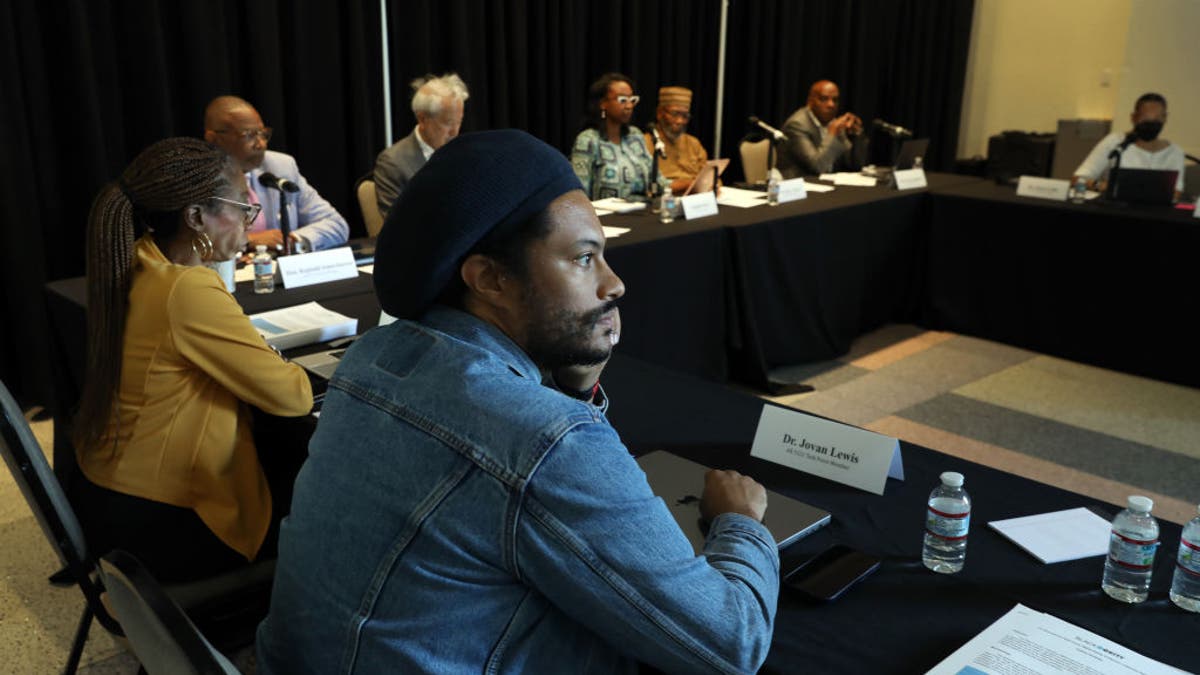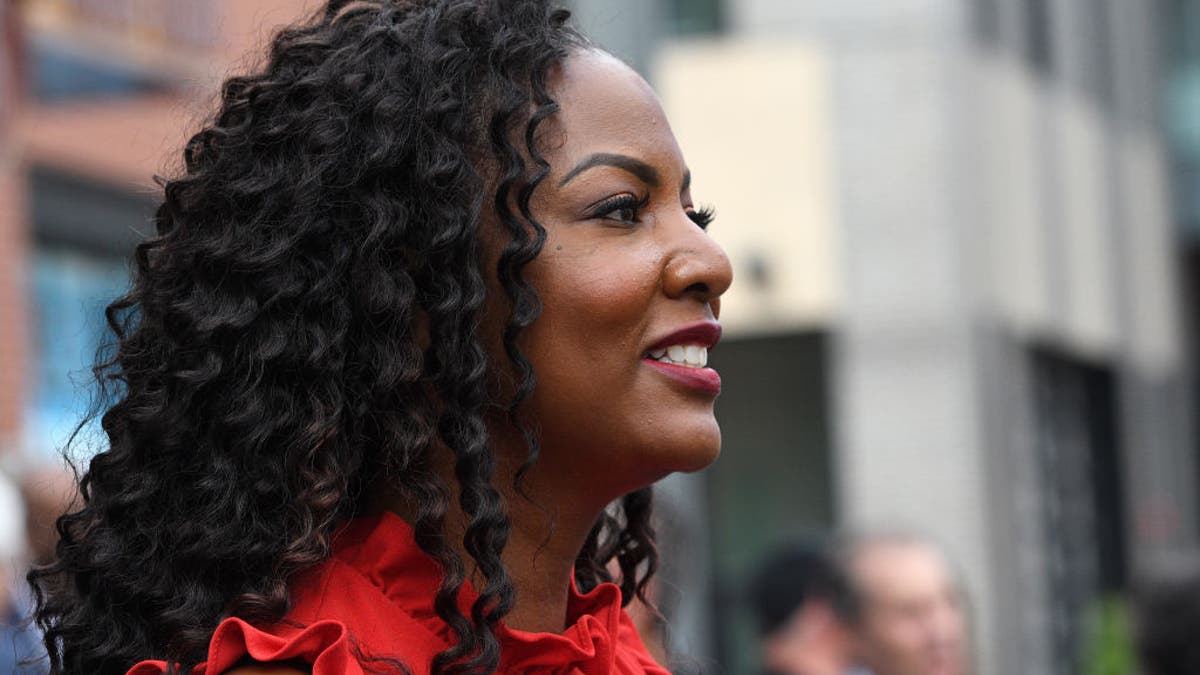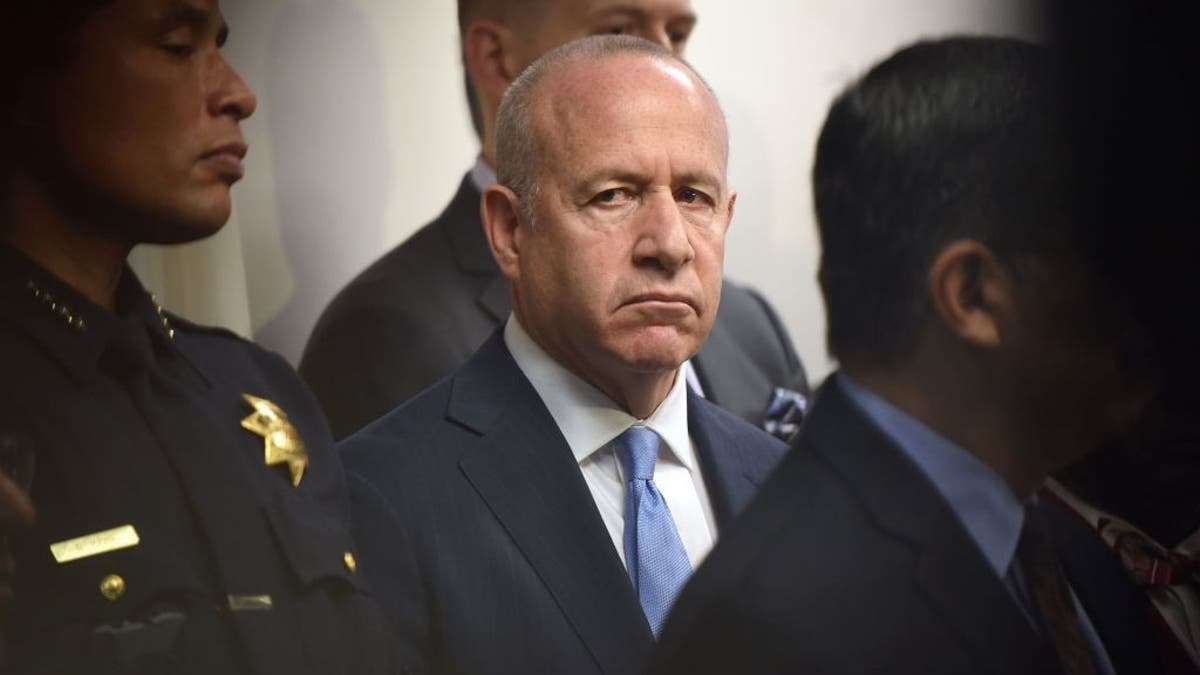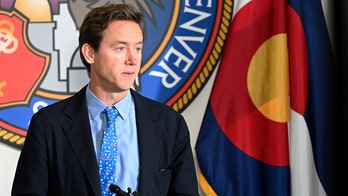Horace Cooper: Reparations is all about buying votes
Project 21 chair Horace Cooper discusses how the California reparations movement is a scam’ on ‘The Ingraham Angle.’
As San Francisco's current reparations push has garnered the spotlight, a nationwide coalition of Democratic mayors has been working on pushing reparations for its Black residents as a template for the federal government.
Launched in 2021, Mayors Organized for Reparations and Equity (MORE) formed with eleven mayors and has since maneuvered in hopes of showing how the federal government could implement a national program.
"The idea of reparations for Black Americans has been locked in a conversation that has hardly moved beyond theory since the end of the Civil War," the group states on its website. "The members of Mayors Organized for Reparations & Equity (MORE) are committed to moving that needle with action and advocacy that points toward justice and healing the wounds of history."
"Our coalition stands on the belief that cities can — and should — act as laboratories for bold ideas that can be transformative for racial and economic justice on a larger scale, and demonstrate for the country how to pursue and improve initiatives that take a reparatory approach to confronting and dismantling structural and institutional racism."

Los Angeles, California-Sept. 22, 2022-Dr. Jovan Lewis, center, listens during as the California Reparations Task Force meets to hear public input on reparations at the California Science Center in Los Angeles on Sept. 22, 2022. (Carolyn Cole / Los Angeles Times via Getty Images) (Los Angeles Times/Getty Images)
MORE, which at its launch NPR called the "biggest city-led reparations effort in U.S. history," has included several heavy-hitting Democratic mayors who have put into motion or implemented reparations pilot programs in their cities, such as former Providence Mayor Jorge Elorza, St. Louis mayor Tishaura Jones, Sacramento Mayor Darrell Steinberg, and former Los Angeles Mayor Eric Garcetti.
Reparations have gained steam in areas such as San Francisco, where its board of supervisors is considering recommendations from the city's African American Reparations Advisory Committee to make amends for slavery, including paying qualifying Black residents a one-time lump sum of $5 million, the elimination of personal debt and tax burdens, and guaranteeing annual incomes of at least $97,000 for 250 years.
But reparations pushes have also been underway in other areas, particularly the cities with mayors involved with the MORE coalition.
In Providence, Rhode Island, millions of dollars in COVID-19 relief funds from President Biden's American Rescue Plan (ARP) helped create a "reparations" commission pushing for a bail bond fund and K-12 curriculum reform, among other measures, to address systemic racism experienced by people of color in the city.
After Providence received $166 million in ARP funds, former Mayor Jorge Elorza, who was part of the MORE coalition before leaving office in January, signed a budget ordinance into law that funneled a majority of those funds – over $123 million – into categories that center racial "equity and resiliency" due to the "disproportionate impacts of COVID-19 on vulnerable and frontline communities," according to the Providence Rescue Plan website.
WHAT COMES NEXT FOR REPARATIONS IN SAN FRANCISCO AND CALIFORNIA

Former Providence, Rhode Island, Mayor Jorge Elorza, left, put reparations plans into motion before leaving office. (Photo by Chip Somodevilla/Getty Images)
Elorza's budget allocated over $13 million toward "racial equity," and $10 million went toward creating the Providence Municipal Reparations Commission.
The reparations commission released a report last August with a list of recommendations for the $10 million budget, which stopped short of suggesting cash payments to residents impacted by slavery, as reparations are typically defined. Instead, it said reparations are any measures that close the "present-day racial wealth and equity gaps."
In order to close the gap, the report recommended the city issue a formal apology for slavery, create a bail bond fund to "reduce unjust pretrial detention for African heritage and Indigenous people," and expand the Providence Guaranteed Income program, which makes no-strings-attached, $500 monthly payments to low-income residents.
St. Louis, Missouri, Mayor Tishaura Jones, another coalition member, took a "first step" towards reparations in April 2022 by signing a bill allowing taxpayers to give to a slavery reparations fund voluntarily to "reverse generational wrongs," U.S. News reported at the time.
The bill allowed individuals and companies to beef up the fund by adding cash to annual property tax bills or quarterly joint water and refuse collection bills, the publication noted.
NEWSOM UNDER PRESSURE TO TAKE EXECUTIVE ACTION ON REPARATIONS IF CALIFORNIA LEGISLATURE DOESN'T ACT

St. Louis mayor Tishaura Jones recently signed an executive order creating a reparations committee. (Photo by Michael Allio/Icon Sportswire via Getty Images)
Jones has since taken further steps toward reparations. Earlier this month, she signed an executive order creating a reparations committee and appointed nine individuals to the commission.
According to the executive order, a "community-driven commission" was established "to assess the history of slavery, segregation, and other race-based harms in the City of St. Louis; explore the present-day manifestations of that history; and, ultimately, recommend a proposal to begin repairing the harms that have been inflicted and necessary for the welfare of the City of St. Louis."
In Sacramento, California, Mayor Darrell Steinberg, yet another MORE coalition member, is piloting a reparations program, local outlet ABC10 reported in January.
"I think it's really important for any city to have a reparations program," Kelly Fong Rivas, Steinberg's senior adviser, told the publication. "I think for Sacramento, it is also a little more important because we are the capital city of California, a state that is taking this on statewide and it's important for us to show our community that we are so proud of, that we always talk about being so diverse, that we do take seriously our history and the importance of reconciling those harms that have happened."
And in Los Angeles, former Mayor Eric Garcetti, who was also in the MORE coalition, launched a reparations pilot program before exiting office in December.

Sacramento Mayor Darrell Steinberg, also a MORE coalition member, supports reparations for its residents. (Photo credit should read JOSH EDELSON/AFP via Getty Images)
Other MORE coalition members include or have included: Durham, North Carolina's Elaine O'Neal; Kansas City, Missouri's Quinton Lucas; St. Paul, Minnesota's Melvin Carter; Denver, Colorado's Michael Hancock; Tullahassee, Oklahamo's Keisha Currin; Asheville, North Carolina's Esther Manheimer; Carrboro, North Carolina's Damon Seils; Austin, Texas' former Mayor Steve Adler; and Stockton, California's former Mayor Michael Tubbs.
CLICK HERE TO GET THE FOX NEWS APP
While the group's ultimate goal is to provide a template for the federal government to implement a reparations program, the White House has refused to say if President Biden supports reparations for slavery and instead said they're "going to leave it there for Congress to decide."
The U.S. government, however, is considering asking Black Americans on federal forms whether they had enslaved ancestors, the Wall Street Journal reported this week.
MORE did not respond to a Fox News Digital request for comment.
Fox News Digital's Jessica Chasmar and Ashley Carnahan contributed reporting.




